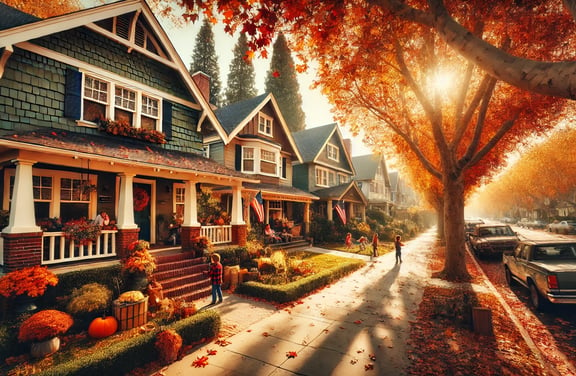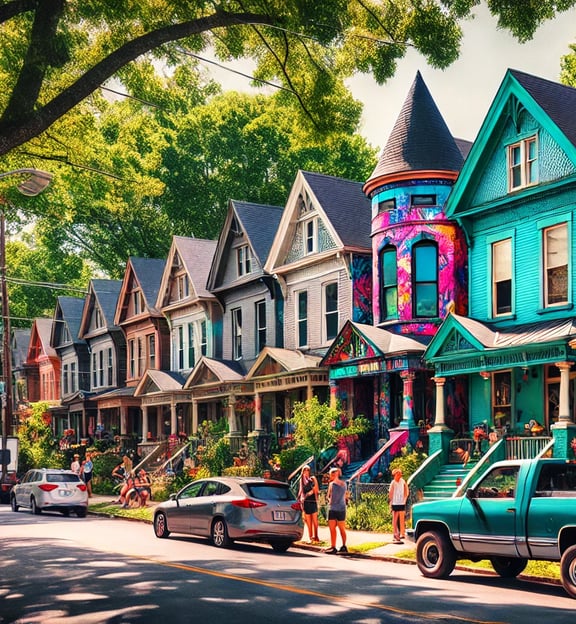A Comprehensive Guide to Nashville's Real Estate Market Dynamics
Explore the Nashville real estate market dynamics, from historical trends to current conditions and future predictions. Dive into neighborhood comparisons and investment opportunities.
DAVIDSON COUNTYNASHVILLE


A Comprehensive Guide to Nashville's Real Estate Market Dynamics
The real estate market in Nashville has evolved significantly over the years, shaping the city into a dynamic hub of opportunity for homebuyers, investors, and developers. Understanding these dynamics is crucial for anyone looking to navigate the intricacies of this thriving market. This guide delves into the historical trends, current conditions, and future predictions for Nashville's real estate market, providing a comprehensive overview for prospective buyers and investors.
Historical Market Trends
Over the past few decades, Nashville's real estate market has seen considerable shifts. In the early 2000s, the market was relatively stable, with moderate price increases and steady demand. However, the post-2008 financial crisis period brought significant changes. The market initially slowed down but rebounded quickly, leading to a period of rapid growth and increasing home values.
Key historical events, such as the establishment of major corporate headquarters and infrastructural developments, have significantly impacted the market. For instance, the relocation of healthcare giants like HCA Healthcare to Nashville spurred job growth and increased demand for housing.


Historical Market Trends in Nashville


Current Market Overview
As of mid-2024, Nashville's real estate market is showing robust activity. The median listing price for homes is approximately $575,000, with a median price per square foot of $310. Homes are selling for around $433,800, reflecting a year-over-year increase of 15.1%. The market is somewhat competitive, with properties typically receiving two offers and selling within 48 days.
The influx of new residents, particularly from more expensive cities like New York, continues to drive demand. Nashville's job market remains strong, attracting relocations and sustaining the upward trend in home prices.
Current Market Overview in Nashville


Factors Influencing Market Dynamics
Economic Growth
Nashville's economic growth is a primary driver of its real estate market. The city boasts a diverse economy with significant contributions from the healthcare, education, and music industries. Major corporations have set up their headquarters in Nashville, providing ample job opportunities and attracting a skilled workforce.
Population Growth
The population of Nashville has been growing steadily, with the metropolitan area now exceeding 2 million residents. This growth is fueled by the city's attractive quality of life, relatively lower cost of living compared to other major cities, and a robust job market. As more people move to Nashville, the demand for housing continues to rise.
Employment Rates
Employment rates in Nashville are consistently higher than the national average. The city's strong job market, particularly in healthcare and technology sectors, attracts professionals from across the country. This influx of skilled workers drives demand for both rental and owner-occupied housing.
Factors Influencing Market Dynamics in Nashville


Neighborhood Comparisons
Nashville offers a diverse range of neighborhoods, each with its unique charm and market dynamics. Comparing downtown areas to suburban neighborhoods reveals interesting trends.
Downtown vs. Suburban Areas
Downtown Nashville is a bustling hub with high demand for condos and apartments. The median price for one-bedroom units downtown is around $387,500. In contrast, suburban areas like Green Hills and Belle Meade offer more spacious homes, often at higher prices, but with a quieter lifestyle and excellent schools.
High-Demand Neighborhoods
Certain neighborhoods in Nashville are particularly popular due to their amenities, proximity to downtown, and overall quality of life. Green Hills, Inglewood, and West Meade are among the most desirable areas, attracting buyers with a variety of housing options from luxury properties to more affordable homes.
Neighborhood Comparisons in Nashville


Market Predictions for 2024
Experts predict that Nashville's real estate market will continue to grow in 2024, albeit at a more stable pace compared to the rapid increases of previous years. Interest rates are expected to decrease, potentially increasing competition among buyers as borrowing costs become more affordable.
Conclusion
Navigating Nashville's real estate market requires a keen understanding of its dynamics. From historical trends to current conditions and future predictions, the market presents both opportunities and challenges. By staying informed and adapting to market changes, buyers and investors can make strategic decisions that align with their goals.
Nashville's real estate market is vibrant and evolving, reflecting the city's growth and development. As Nashville continues to attract new residents and businesses, its real estate market is poised for sustained growth, offering a wealth of opportunities for those looking to invest in this dynamic city.


Frequently asked questions
What factors are driving Nashville's real estate market? Key factors include economic growth, population influx, and strong employment rates in sectors like healthcare and technology.
Are there good investment opportunities in Nashville's real estate market? Yes, emerging neighborhoods like Donelson and parts of Nolensville Road offer promising investment opportunities.
What are the predictions for Nashville's real estate market in 2024? Experts predict continued growth with stable price increases and decreased interest rates leading to higher buyer competition.
What is the current median home price in Nashville? The current median home price in Nashville is approximately $575,000.
How long do homes typically stay on the market in Nashville? Homes in Nashville typically stay on the market for about 48 days.
Which neighborhoods in Nashville are most desirable? Popular neighborhoods include Green Hills, Inglewood, and West Meade, known for their amenities and quality of life.



